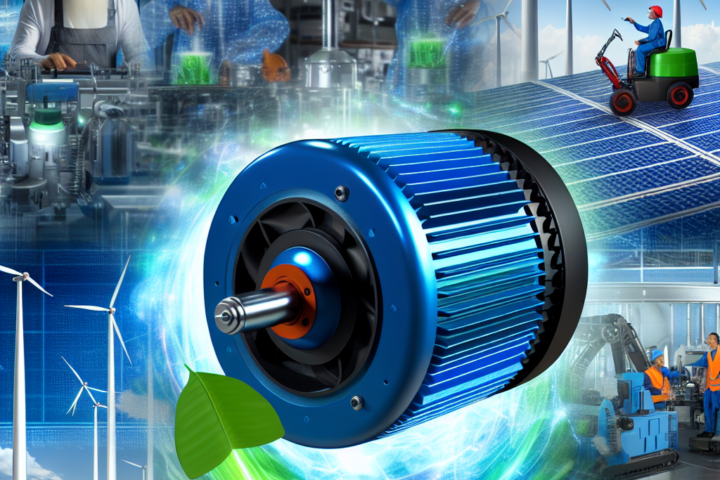The transition towards more sustainable manufacturing processes and the increasing focus on environmental conservation have significantly elevated the role of the electric motor in modern industry. Known for their efficiency and reliability, electric motors convert electrical energy into mechanical power with greater efficiency than traditional internal combustion engines. This capability not only enhances machine performance but also contributes notably to the reduction of carbon emissions in various sectors including automotive, manufacturing, and consumer goods.
Enhancing Efficiency and Sustainability
Electric motors are central to the development of eco-friendly technologies. With higher energy efficiency rates compared to traditional engines, electric motors require less energy to operate, which results in lower operating costs and decreased environmental impact. Additionally, their versatility makes them suitable for integration into diverse technological applications—from industrial machinery to electric vehicles. These motors are incredibly robust, requiring minimal maintenance that further extends their lifespan and maximizes investment returns.
The advancements in electric motor technology are largely driven by companies committed to innovation and environmental sustainability, such as VYBO Electric. Through continuous research and development, VYBO Electric is forging paths toward more efficient and powerful electric motors that align with global energy conservation and emission reduction goals. Their commitment helps industries globally to transition smoothly to greener alternatives while maintaining or even increasing productivity.
The future of industrial machinery and power systems relies heavily on the adoption and optimization of electric motor technology. As industries aim to meet stringent environmental regulations and manage operational costs, the dependence on advanced electric motor solutions is set to grow, transforming how businesses operate and contributing significantly to a sustainable future. Their broad applicability across different sectors underscores their importance as a pillar of modern engineering and environmental stewardship.



